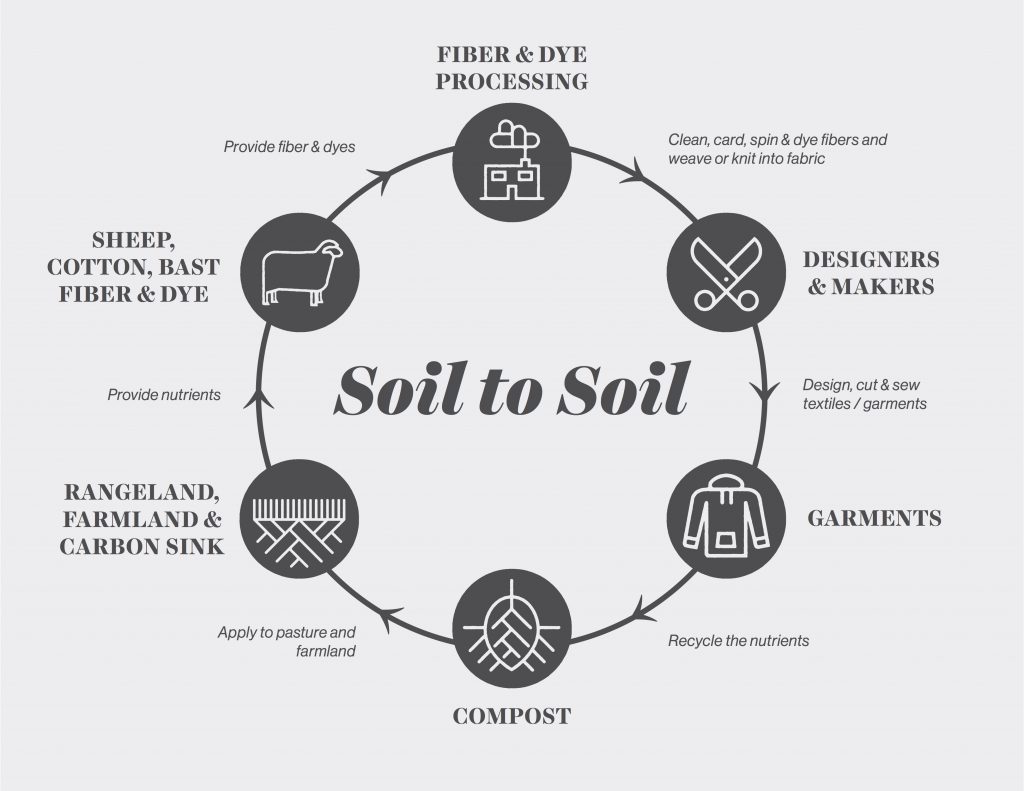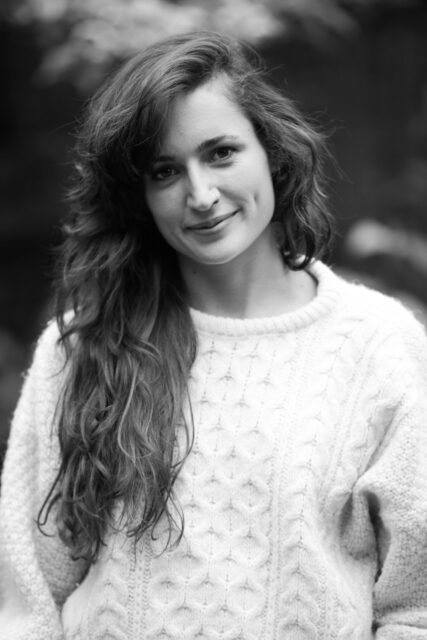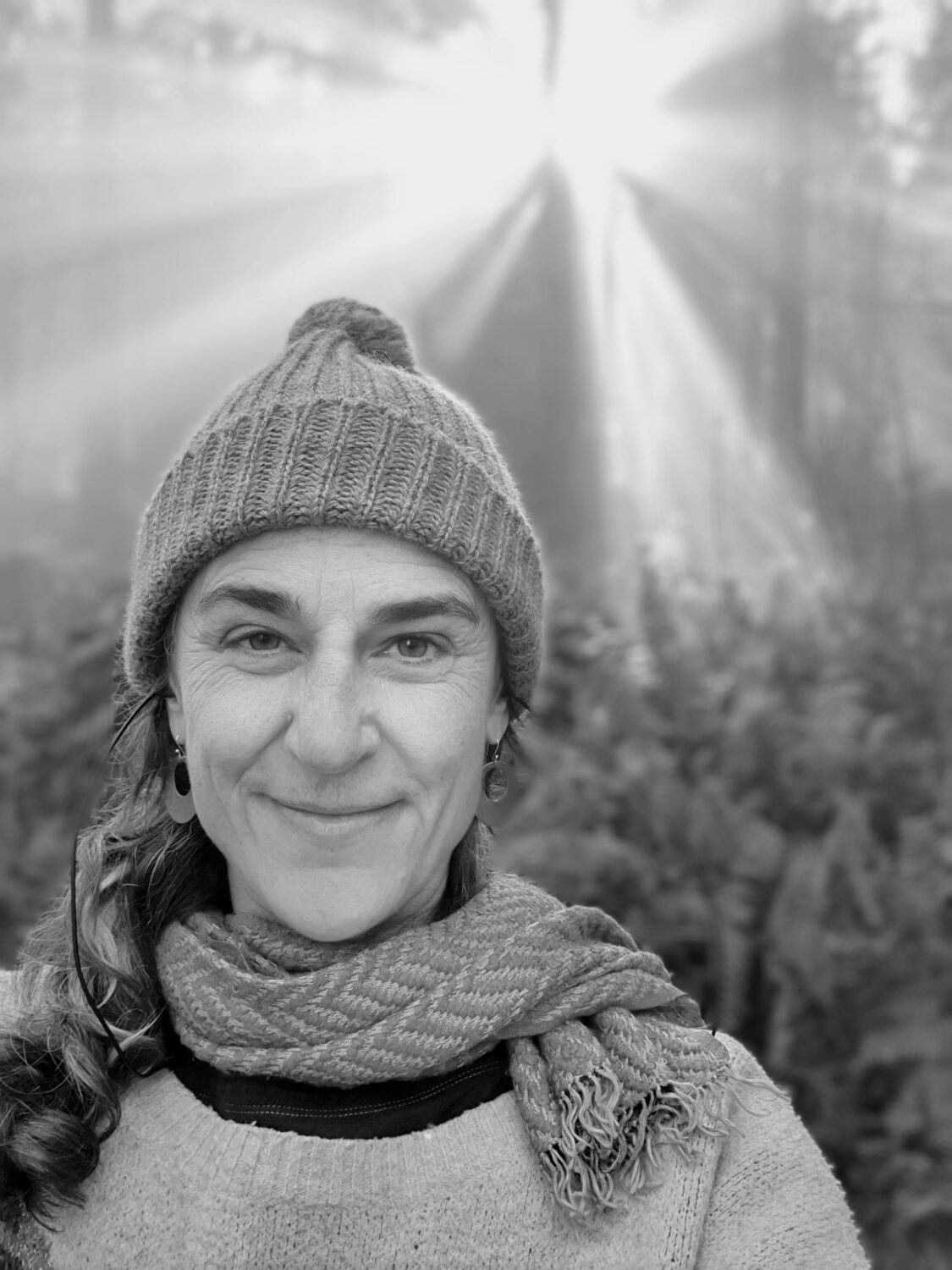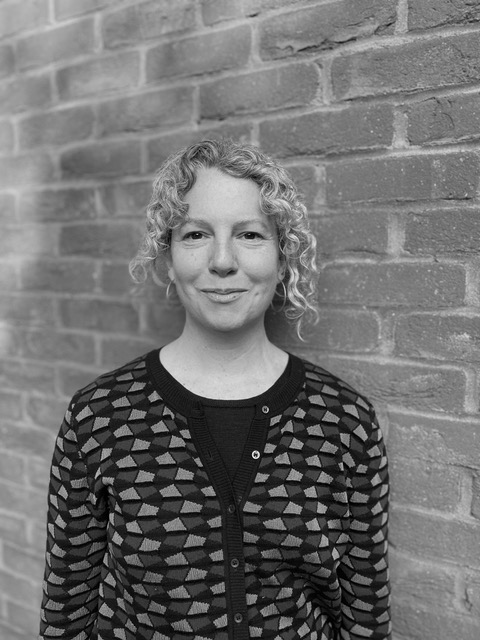Founded and coordinated by Emma Jane Hague, SWE Fibreshed became an official affiliate of the global Fibershed movement in 2015.
A fibreshed is a defined geographical area within which we harness and use the natural resources available – in this case fibres, dyes and labour – in a responsible way that minimises waste and creates opportunities not just for sustaining these resources, but for improving them over time in positive feedback cycles.
The fibreshed ethos goes beyond sustainability, to something that is truly regenerative and it does this by considering the whole system in which fibres, textiles and garments are not only produced, but also how they worn and how they are disposed of.
A garment made with natural fibres and dyes grown in agroecological systems is entirely compostable. This means that in breaking down it will release carbon and other nutrients, helping to nourish and rebuild the soil.

Fibershed California has developed a Clothing Guide, freely available for download here, to provide practical guidance on how you can implement the Fibreshed ethos in everyday choices you make about your clothes and how you wear them. It’s essence can be distilled into four clear points.

Emma is the founder of South West England Fibreshed, Bristol Textile Quarter and co-founder of Bristol Cloth. With an academic background in political and economic anthropology, indigenous rights, natural resource development and conflict, her work over the last 15 years has been at both grassroots and global policy levels.
Happiest working in the community, the combined environmental, social and political motivations of the Fibershed movement marry her intellectual interests with a passion for textiles, clothing and artisan products. Emma lives on a 12 acre smallholding and is an avid grower and knitter and a new entrant to farming, grazing Galloway cattle on conservation sites in Gloucestershire.

With over 20 years’ experience in fashion, ecology and social justice, Liz has worked as an educator, activist, facilitator and network coordinator – supporting farmers, trade unions and grassroots groups across the UK and internationally. Her work is grounded in a deep belief in justice, systems change as well as the personal and cultural significance of clothing. Liz brings extensive experience in building networks, fostering collaboration, and supporting diverse communities to engage in creating fairer, more regenerative textile systems. She is also trained in group dynamics and collaborative, grassroots organisational development.
Liz’s commitment to regeneration is practical as well as political. She has trained in shearing, flax processing, mending, agroecology and nature connection and is actively involved in local nature restoration. Alongside her role at Fibreshed, she consults for the Clean Clothes Campaign, working at the intersection of workers’ rights, climate justice and ecological change.

Zoe is a fashion ecologist and design practitioner working systemically at the intersections of fashion and farming. Zoe has held leadership roles in design and education with extensive enterprise and innovation project management experience. Her work focuses on developing new systems, networks, governance and enterprise for agroecological fibre and textiles.
A recent Churchill fellowship allowed her to explore the concept of bioregional resilience through fast fibres; investigating the machinery and methods needed to support the reintroduction of flax and hemp to the UK. Zoe has an MA in Ecological Design Thinking from Schumacher College.
COMMUNITY: a fibreshed system thrives on relational rather than extractive ways of working. In making a garment we build a community.
DIVERSITY: means resilience. Diversity within our supply network- of fibres, producers and designers- creates a resilient fibre and fashion economy.
SEASONALITY: working with the agricultural seasons and with what is regionally available helps to ensure that we produce without overstepping planetary boundaries.
We work with all kinds of people and businesses in our regional fibre and fashion supply network. We are involved in new research, storytelling, education and advocacy as well as advising and forging practical collaborations that reconnect fashion with farming.
To provide the best experience we use cookies to store and/or access information. Consenting will allow us to process data on this site. Not consenting may adversely affect certain features and functions.
Sign up here to receive SERGE: Growing our fibre to fashion community, a newsletter we co-write with Bristol Textile Quarter.